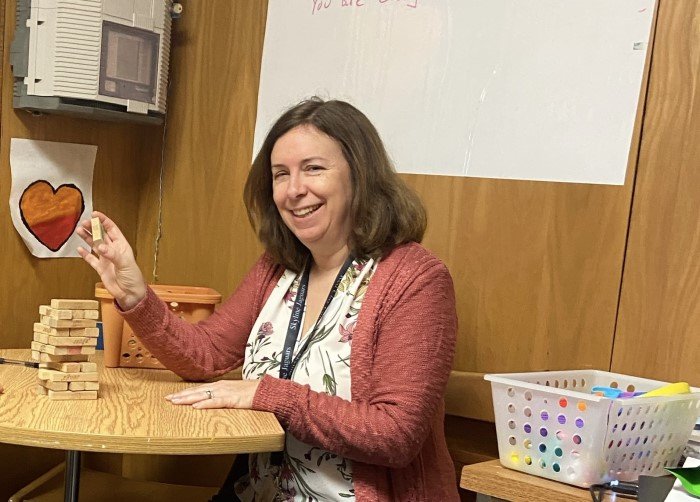by Kelly Green
I have been a counselor in schools in Wilmington, Delaware for 16 years, and currently, I work for Children and Families First as a Behavioral Health Consultant at Skyline Middle School. Children & Families First is one of Delaware’s oldest and most trusted leaders in meeting the needs of children and families. We use brain science and evidence-based practices proven to prevent, intervene, and heal the immediate and life-long negative impacts of childhood adversity, toxic stress, and trauma.
Most of the students I work with have been impacted by COVID. Some are in foster care or live with grandparents or great-grandparents, some are experiencing homelessness, and many have been affected by significant traumatic events. My role as a behavioral health consultant (BHC) is to provide a safety net for our students. The past two years have illuminated the need for more mental health supports in schools. Now, more than ever, we need to advocate for improvements in this system, like securing enough mental health professionals in our schools.
Mental health supports in schools are important for all, but for our students experiencing adversity, they are critical. As a BHC in a school, I can meet with students who do not have transportation or the financial means to access mental health and I can support them more than an hour a week while they are at school. And, when needed, I can assess and intervene in the moment. For instance, one of my students is in foster care. She had been interested in a certain boy and came to my office crying because he “didn’t see or hear her.” After helping her get back to her “upstairs brain” and process her feelings, I asked if she had ever felt that way before. She was able to connect these feelings to feelings about her parents and the negative experiences she had been unable to process before. This opportunity-inspired moment led to a genuine breakthrough for her recovery, one that would not have happened two days later through telehealth or in an office appointment.
Not only do mental health professionals in schools help students, they also help educators and families. One student I work with lives with her great-grandmother because her parents were killed. While reading a murder mystery in class, she became upset, left the classroom, and arrived at my office in tears. Because I knew this student’s unique situation, I was able to help the student, and then I worked with the teacher to help clarify what happened and why. I speak daily with teachers and often with families, too. We discuss the needs of the young people in their care, how to address their specific concerns, but also we talk candidly about how to manage their own feelings as well.
To me, most importantly, when schools have enough mental health professionals, it normalizes the conversation about mental health. Students learn that seeking support for big feelings is okay. In fact, students often serve as part of my referral system, escorting other students to me saying, “he needs to talk to you,” or, “Ms. Green, can you check on this student?”
Our children need to know there is a safe place to share their feelings and thoughts. Mental health professionals in schools can provide that safe place.
Please use your voice to strengthen the safety net for our children in schools. Advocate for improvements in the system like mental health counselors in schools and mental health education as part of the school curriculum.
Let’s strengthen the net to make sure no child falls through.

Kelly Green has worked in Wilmington, Delaware as a counselor in schools for 16 years, and she has a strong background in trauma-informed education. Kelly has volunteered in various capacities with NAMI Delaware in recent years, and she offered testimony for the House Education Committee hearing for HB 300 and HB 301 in March 2022. Last October, Kelly received the 2021 NAMI Delaware’s School Mental Health Champion Award for her outstanding mental health work in the field of education.
